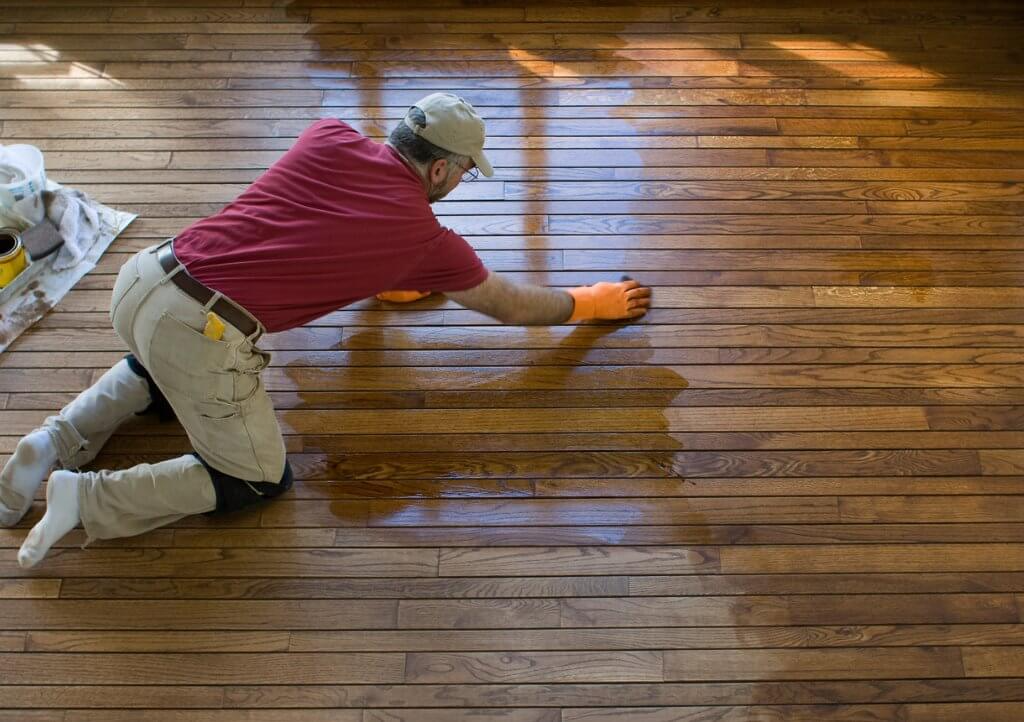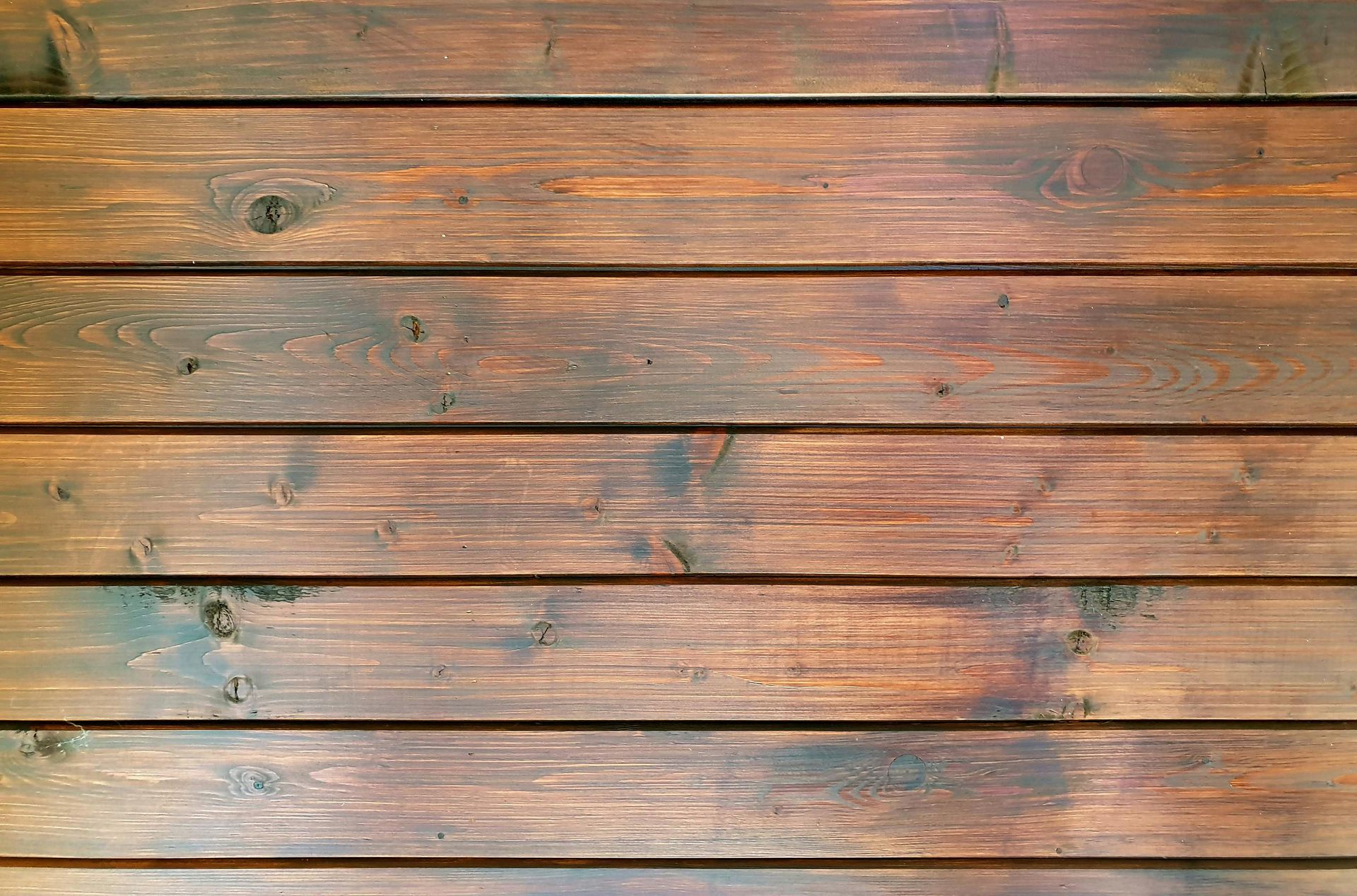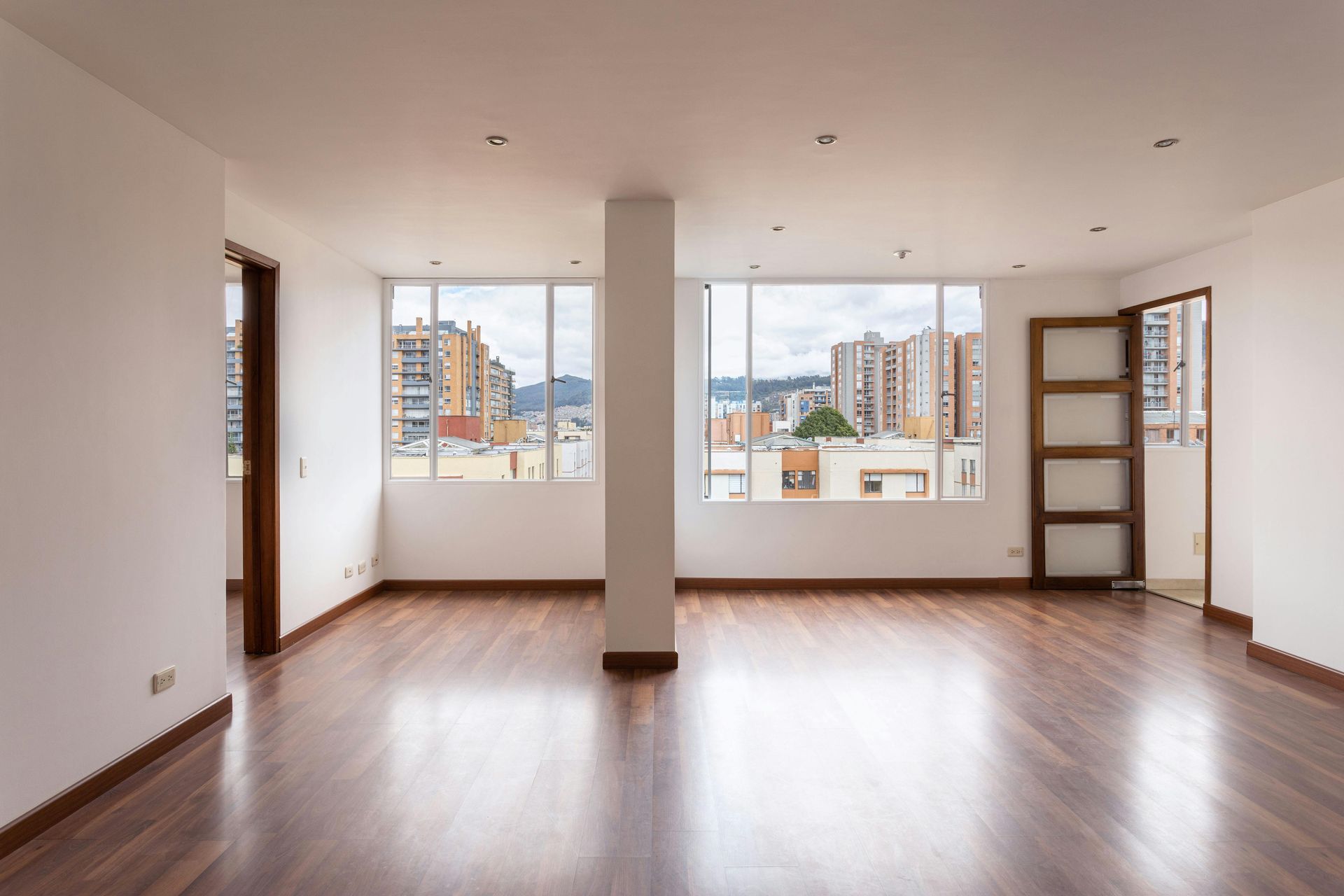How to Clean Hardwood Floors

Cleaning your hardwood floors is much easier than you think. During spring, an extra buildup of dirt, mud, and other debris can increase from spring weather. Kids, pets, and work boots can really start tracking in mud, as well as, shedding and other messes. Now is a good time to learn the right way to clean your hardwood floors. Below are some tips, tricks, and what not to do to clean hardwood floors.
Cleaning and Maintenance
The first steps to cleaning your hardwood floors is to sweep, vacuum, and dry mop. This should be done weekly or as needed in between wet mopping. Try keeping a broom and dustpan in different areas of your home for a quick clean up as needed. For dry mopping, try using Swiffer dry mopping pads, or for a more eco-friendly option try reusable pads that can be thrown into the washing machine. Vacuuming should also be done weekly. By doing a weekly dry cleaning routine, you will prolong your floor’s finish and the life of your hardwood. When dirty, it can scuff the finish and damage your flooring.
Mopping
Mopping is the final step. It is very important to do this correctly. It is a good idea to refer to any specific cleaning instructions that came with your flooring. A good go-to for mopping cleaners is to check with the store you bought your flooring from. They will have excellent recommendations and approved cleansers for your hardwood flooring. For at-home cleaners, try vinegar, essential oils, or dish soap. Warm water, vinegar, and a few drops of soap make a great natural cleaner free of chemicals that will make your floors shine. Make sure to only use a dampened mop when cleaning your hardwood. Make sure to cleanse with the cleaning mixture and then remove the cleanser with a mop dampened with warm water. When finished, dry the floor completely. This will ensure your floor does not get water damage.
What Not to Do
When cleaning hardwood floors, it is very important to remember that water can cause major damage to hardwood floors. If too much water or moisture gets into your hardwood, it will cause damage like warping and buckling to your flooring causing the need to be removed and replaced. Hardwood floors can last a very long time if taken care of properly. That is why it is important to not clean your floors with too much water when you mop. It is also a good idea to not steam your flooring. Steam will penetrate the wood and cause damage.
Come to Floors for Less to learn more about cleaning your hardwood floors!







